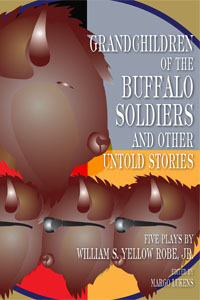Playwright discusses biracialismPosted in Articles, Identity Development/Psychology, Media Archive, Native Americans/First Nation, United States on 2011-11-09 02:18Z by Steven |
Playwright discusses biracialism
The Dartmouth
2006-01-18
Ashley Zuzek, The Dartmouth Staff
William S. Yellow Robe, Jr., author of the play “Grandchildren of the Buffalo Soldiers,” discussed the psychology of racial duality during a Tuesday night discussion at the Hopkins Center and emphasized the need for Americans of mixed blood to identify with a single race rather than getting lost between the two.
Having mixed blood, Yellow Robe said, “has created a psychology that no one has dealt with. People go into this panic of being too native or not being native enough.”
Yellow Robe, who is both Native American and African American, described the difficulty of being biracial during his discussion, “Claiming Our Relations.”
While Yellow Robe identifies more with his Native American ancestry than his African American ancestry, he is not ashamed of his mixed race.
“I honor it and I never deny it,” he said. However, he cautioned that people of mixed race should not “straddle both paths,” and that he has never regretted identifying with his Native American side…
Read the entire article here.

